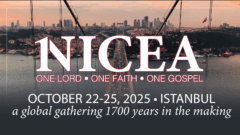I have never read beyond the first sentence of Mark Noll’s book The Scandal of the Evangelical Mind. The first sentence was so perfect, so cutting, so convicting, that I felt the rest of the book could only be a let-down. “The scandal of the Evangelical mind,” he writes,”is that there is not much of an evangelical mind.” It is the perfect opening to a book. I do wonder how the book ends, so at some point I will have to read it.
In the meantime, though, I decided to read a book by a man who, I’m sure, would agree with Noll’s thesis. Love Your God With All Your Mind, by J.P. Moreland, is subtitled “The Role of Reason in the Life of the Soul.” “Judged by the Scriptures, church history, and common sense, it is clear that something has gone desperately wrong with our modern understanding of the value of reason and intellectual development for individual discipleship and corporate church life.” I could not agree more. The Christian mind has largely disappeared from North American Christianity. There are five characteristics that capture the essence of the impact of anti-intellectualism on today’s evangelicalism: a misunderstanding of faith’s relationship to reason, the seperation of the secular and the sacred, weakened world missions, the spawning of an irrelevant gospel, and a loss of boldness in confronting the idea structures in our culture with effective Christian witness. These are serious problems and ones the church must begin to address if we are to have any voice in our culture.
The antidote to this anti-intellectual thrust within Evangelicalism is clear: “If we are going to be wise, spiritual people prepared to meet the crises of our age, we must be a studying, learning community that values the life of the mind.” Moreland seeks to show that our lives are transformed not by our emotions, but that life and emotion are both transformed as we renew our minds. And this is where he takes the reader through ten dense but challenging chapters. He encourages the Christian not only to develop a thoroughly, distinctly Christian mind, but to then use the intellect to further God’s kingdom through evangelism, apologetics, worship and vocation.
On the whole he does so convincingly. A trap that Moreland seems to fall into, though, and one I have found to be common among intellectuals, is that he regards the intellect as somehow more pure or less-effected by the fall than our emotions. As Gary Gilley writes in his short review of this book, “Moreland places too much faith in reason and logic for my taste. While I understand and appreciate the value of these things, it must be remembered that reasoning is not any more infallible than emotion. Logic, too, has been affected by the Fall. Only the Scriptures can be trusted completely, and while I am certain the author would agree with this statement I do not believe his book developed the idea very well.”
The final chapter of the book proposes several solutions for recapturing the intellectual life of the church. Many of these are intruiging, even if they are not entirely practical. Still, believers would do well to ponder these as stimulation for the mind if not necessarily biblical commands.
I read Love Your God With All Your Mind at the urging of a friend who told me that this is a book every Christian needs to read every few years. High praise, indeed. I agree wholeheartedly with Moreland’s concern and agree with much of his proposed solution. I’m not sure that I am likely to read this book again, but I do hope to invest more effort in finding ways to stimulate my mind and in encouraging other believers to flee the anti-intellectualism that is rampant within the church today. And so I give this book a somewhat tentative recommendation. It speaks of a vital subject, but perhaps not in the most convincing way.










